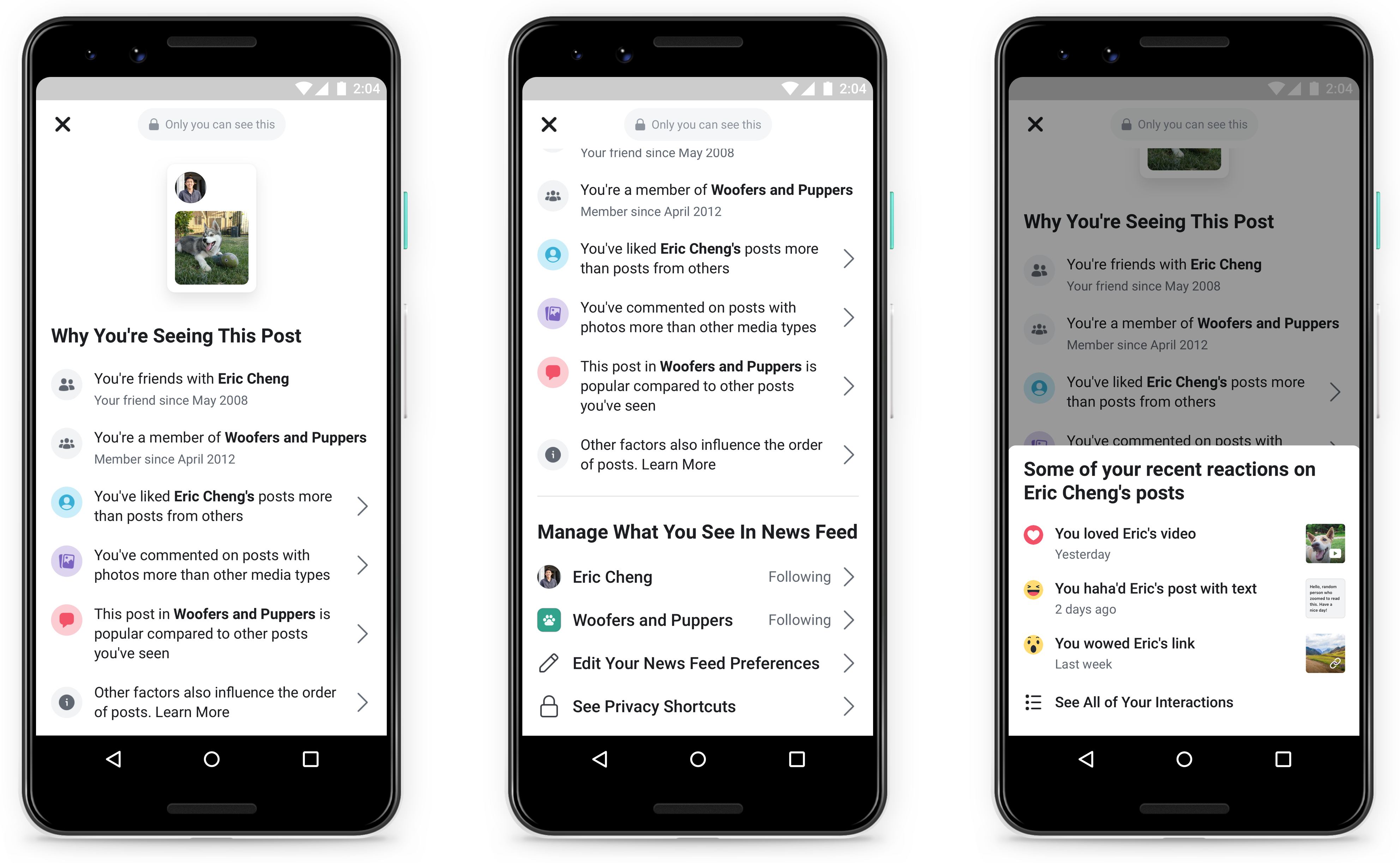How does Facebook’s News Feed work?
New feature shows users why they see certain posts and videos

Facebook has started disclosing how its secretive News Feed algorithm operates by offering its subscribers a new “Why am I seeing this post?” button.
The option – which is being trialled today with a small group of Facebook users before launching worldwide on 2 May – reveals why certain posts, pages and groups appear on our homepage, the BBC reports.
The tool provides insights such as: “you’ve commented on posts with photos more than other media types” and “you’ve liked [friend’s name] posts more than posts from others”, the broadcaster adds.
The Week
Escape your echo chamber. Get the facts behind the news, plus analysis from multiple perspectives.

Sign up for The Week's Free Newsletters
From our morning news briefing to a weekly Good News Newsletter, get the best of The Week delivered directly to your inbox.
From our morning news briefing to a weekly Good News Newsletter, get the best of The Week delivered directly to your inbox.
The feature offers “a rare window into the opaque world of Facebook’s content ranking algorithms”, which have been described by researchers as a “black box”, The Daily Telegraph reports.
The social media site’s algorithms have long a source of debate and scrutiny among tech experts and government officials.
In February, MPs released a damning report that described Facebook founder Mark Zuckerberg and his executives as “digital gangsters”. It accused the company of using its algorithms to spread “disinformation”, The Guardian reports.
It’s hoped that the introduction of the new “Why am I seeing this post?” feature will quell government concerns both in the UK and US.
A free daily email with the biggest news stories of the day – and the best features from TheWeek.com
What is a News Feed in Facebook?
It’s the term Facebook gives to its homepage. The information that fills a user’s News Feed is bespoke to the individual user and displays posts from friends, liked pages or social groups.
But it’s not just posts from known sources that appear on a person’s homepage. Facebook users will also see videos and adverts, as well as posts the social media giant thinks will be suited to their preferences.
How does Facebook’s News Feed work?
Facebook uses complex algorithms powered by artificial intelligence (AI) to decide “what to put at the top of your feed and what to put lower down”, The Telegraph says.
The algorithms analyse “thousands of pieces of information about each user’s behaviour and interests”, generating a series of predictions such as the probability that the user will like or comment on the recommended post, the paper says.
This is why News Feed is so controversial. It prioritises content, such as sensationalist articles, that will provoke “strong emotional reaction or fierce discussion”, it adds.
To some extent, the new “Why am I seeing this post?” feature will help explain how the algorithm works as it shows users a number of factors as to why they’re seeing a specific post.
It also gives subscribers options to alter the way their homepage works, notes The Verge. Users can, for example, press “See First” if they approve of a post, or “Unfollow” if they don’t want to see articles of a certain nature.
But the finer details of News Feed’s algorithms remain a mystery for now. Perhaps they will be unravelled when the full version of the new disclosure features launches early next month.
-
 Why is the Pentagon taking over the military’s independent newspaper?
Why is the Pentagon taking over the military’s independent newspaper?Today’s Big Question Stars and Stripes is published by the Defense Department but is editorially independent
-
 How Mars influences Earth’s climate
How Mars influences Earth’s climateThe explainer A pull in the right direction
-
 ‘The science is clear’
‘The science is clear’Instant Opinion Opinion, comment and editorials of the day
-
 Will regulators put a stop to Grok’s deepfake porn images of real people?
Will regulators put a stop to Grok’s deepfake porn images of real people?Today’s Big Question Users command AI chatbot to undress pictures of women and children
-
 Is social media over?
Is social media over?Today’s Big Question We may look back on 2025 as the moment social media jumped the shark
-
 Most data centers are being built in the wrong climate
Most data centers are being built in the wrong climateThe explainer Data centers require substantial water and energy. But certain locations are more strained than others, mainly due to rising temperatures.
-
 The dark side of how kids are using AI
The dark side of how kids are using AIUnder the Radar Chatbots have become places where children ‘talk about violence, explore romantic or sexual roleplay, and seek advice when no adult is watching’
-
 Why 2025 was a pivotal year for AI
Why 2025 was a pivotal year for AITalking Point The ‘hype’ and ‘hopes’ around artificial intelligence are ‘like nothing the world has seen before’
-
 AI griefbots create a computerized afterlife
AI griefbots create a computerized afterlifeUnder the Radar Some say the machines help people mourn; others are skeptical
-
 The robot revolution
The robot revolutionFeature Advances in tech and AI are producing android machine workers. What will that mean for humans?
-
 Separating the real from the fake: tips for spotting AI slop
Separating the real from the fake: tips for spotting AI slopThe Week Recommends Advanced AI may have made slop videos harder to spot, but experts say it’s still possible to detect them